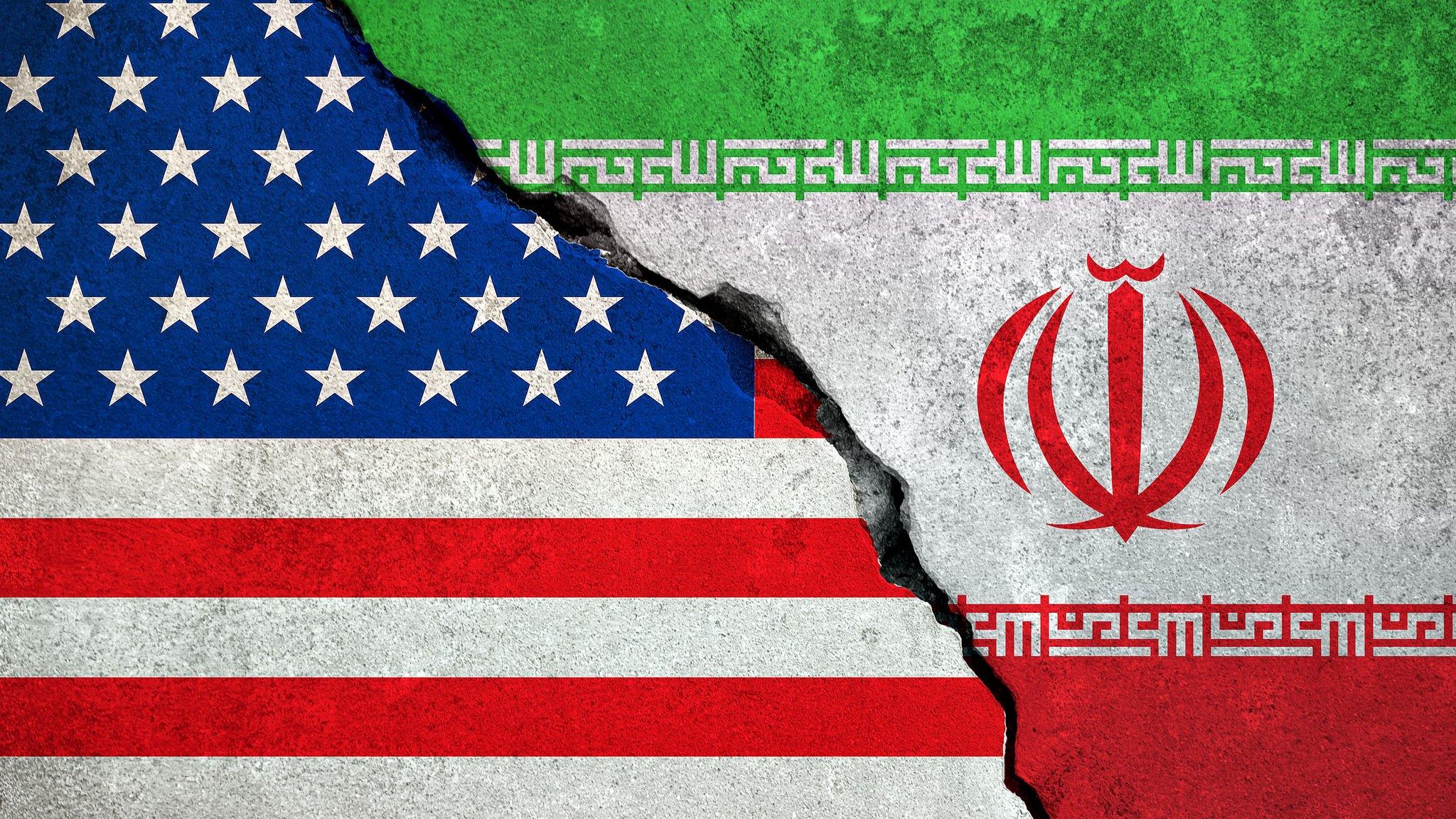Iran: Qasem Soleimani killed by US airstrike ordered by President Trump
- Published
- comments
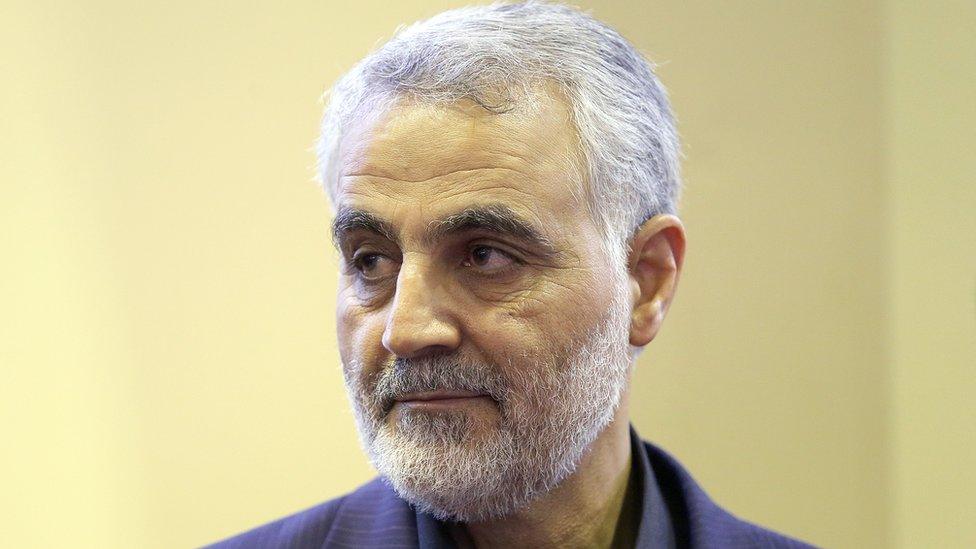
Qasem Soleimani (pictured) was one of the most important figures in Iran.
Iran's most important military leader has been killed by a United States airstrike.
General Qasem Soleimani died in an airstrike in neighbouring Iraq which was ordered by US President Donald Trump on Friday 3 January 2020.
An airstrike is an attack by a military aircraft, in this case a drone, either by bombing or by firing guns.
General Qasem Soleimani was the second most powerful person in Iran, only behind Supreme Leader Ayatollah Ali Khamenei.
Ayatollah Ali Khamenei has said "severe revenge awaits the criminals" behind the attack.
The attack came only months after Donald Trump had accused Iran of being behind attacks on two oil tankers in a key shipping route in the Gulf of Oman, which the US called "hostile behaviour".
Iran denied any involvement in the attacks on oil tankers, and said it would no longer stick to international agreements made about its nuclear ambitions.
The death of General Qasem Soleimani
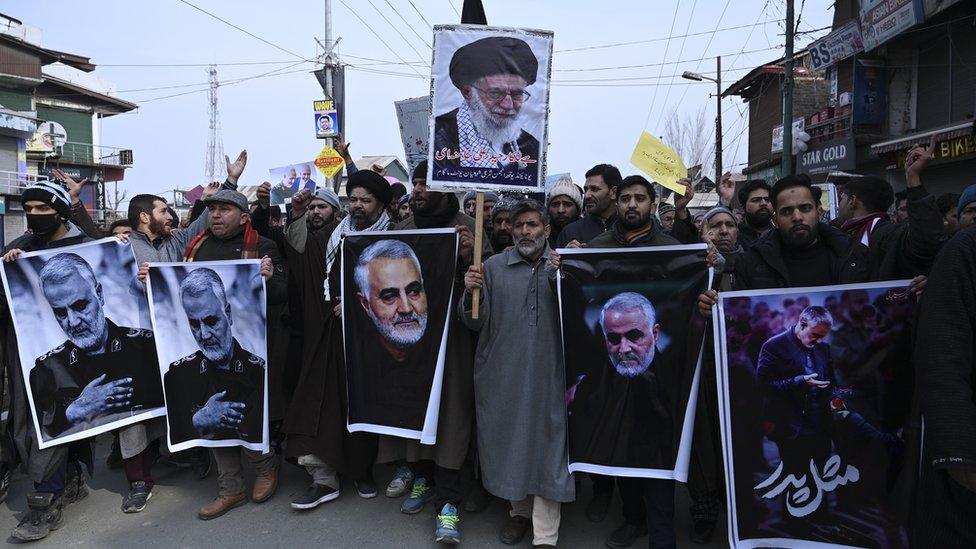
Anti-American protests have started in the Middle East.
Qasem Soleimani was in charge of Iran's military in the Middle East.
He had built up pro-Iranian military groups and expanded Iran's military in the Middle East.
He was seen by many in Iran as a national hero and three days of national mourning have been announced by Ayatollah Ali Khamenei.
The US Department of Defence called General Soleimani, and his troops, a "foreign terrorist organization".
They hold Soleimani's troops responsible for the deaths of hundreds of American soldiers.
President Trump tweeted an image of the American flag shortly after the news broke.
What happens next?
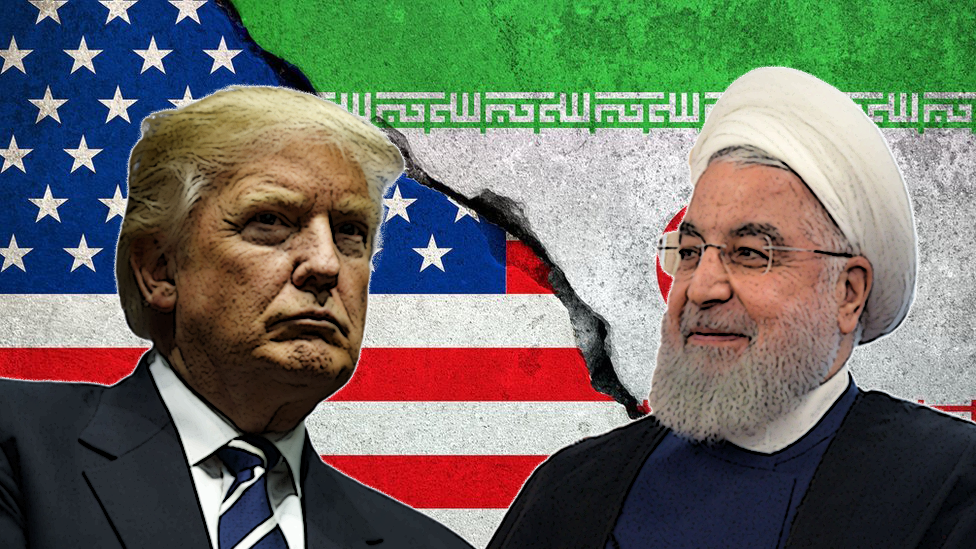
Thousands of people took to the streets of the Iranian city Ahvaz on Sunday 5 January to mourn the death of General Soleimani.
Anti-American chants could be heard as the mourners beat their chests.
It comes days after Ayatollah Ali Khamenei said "severe revenge awaits the criminals" behind the attack.
On 3 January, he led a meeting of Iran's National Security Council to decide on the country's response.
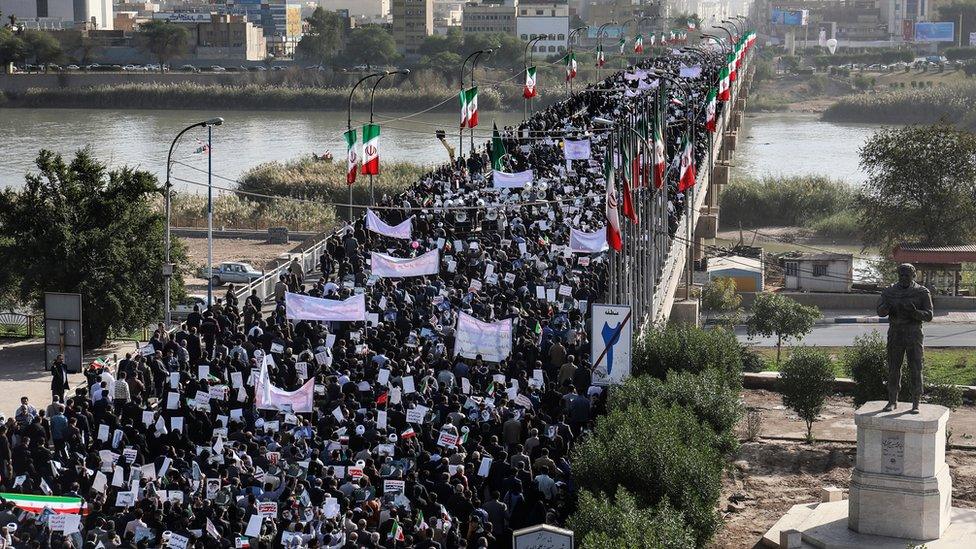
Mourners took to the streets of Iran with anti-American chants heard from the crowd
Experts believe Iran may use cyber attacks against the US or may attack US interests in the Middle East.
In response, Donald Trump has said the US is ready to attack 52 sites "important to Iran and the Iranian culture".
Iran's foreign minister, Mohammad Javad Zarif, responded on social media, saying that the killing of Soleimani was a breach of international law and that any targeting of cultural sites would be a war crime.
Advice if you're upset by the news
The UK government has also responded. Foreign Secretary Dominic Raab said in a statement:
"We have always recognised the aggressive threat posed by the Iranian Quds force led by Qasem Soleimani.
"Following his death, we urge all parties to de-escalate. Further conflict is in none of our interests."
American citizens in both Iraq and Iran have been advised to leave the country as soon as possible.
- Published29 August 2022

- Published8 January 2020
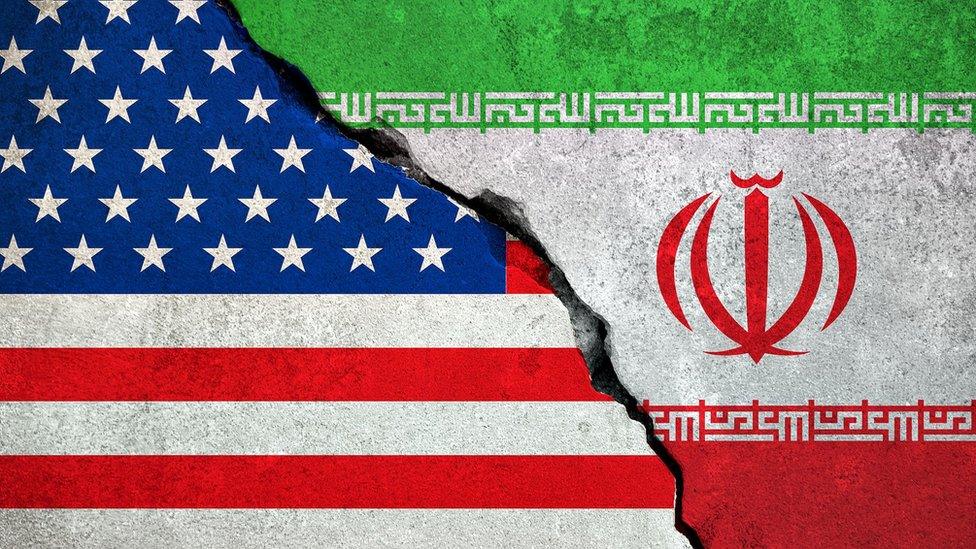
- Published9 May 2018
